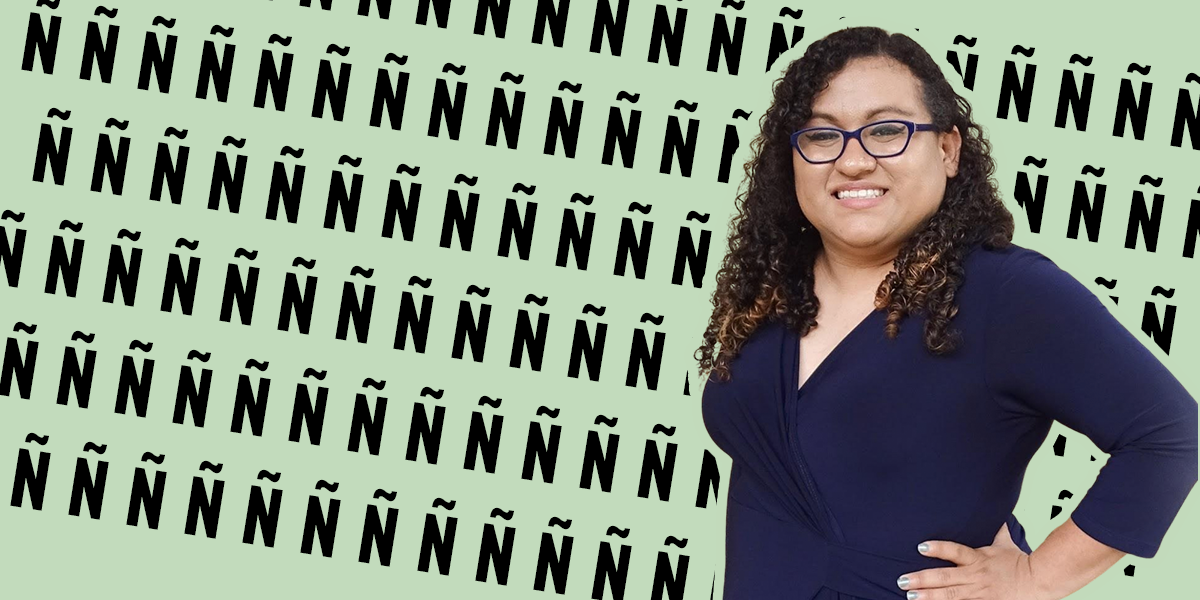Seriously though, I am in awe of Spanish speakers. The language is beautiful and chaotic to my English ears, and after years of classes on the subject, I have a deep respect for (and jealousy of) those who learn Spanish at any point in their lifetime.
That’s not me, like, at all. Picture this: the pandemonium of childhood in the background, my parents working their butts off to provide for five children. When I asked why they didn’t teach us Spanish, I vaguely remember one of them saying it “wouldn’t help us.” I assume that meant in our careers. After all, U.S. employers love bilingual speakers when it suits their business needs. Outside of profit, Spanish is, at best, an annoying mosca and, at worst, a trigger for violent racists.
So, when my parents said it wouldn’t help us, I think they were drawing on their life experience as a whole. Years of public school and college classes didn’t help me either. Do you know how embarrassing it is to have Becky rolling her Rs and pronouncing basic sentences better than you?
Admittedly, not speaking Spanish wasn’t something I talked to peers or family about regularly when I was growing up. I did, however, find solace in the 1997 release of Selena, as played by Jennifer Lopez.
Listening to Abraham lay out how exhausting it is to be Mexican-American is cathartic and watching Selena struggle with her Spanish and still be accepted and loved by her people is inspiring.
A more recent example that I love to rave about (perhaps too much) is Once Upon A Time’s Regina Mills, aka the Evil Queen, as played by Lana Parilla. A main character in the live-action retelling of my favorite Disney films, Regina’s presence was a subtle nod that made me feel seen without portraying blatant stereotypes. She didn’t speak Spanish; she just was. Also, bonus points to the show for having a Latinx actor play her father.
All of this is to say: English is my only language. Yes, I’m the person who walks into a Quinceanera shop to ask for directions to an ATM so I can finally order from a torta food truck (a story for another day) without knowing a lick of Spanish, only to suffer the accusing eye of an older Latina woman. The guilt.
Embracing English, Sans The Guilt
Here are a few things I try to remember when I’m feeling “fake”:
- The numbers are on your side: according to the Pew Research Center, “seven-in-ten (71%) Latino adults say speaking Spanish is not required to be considered Latino.”
- As we all know, Spanish wasn’t the native language of our various cultures. It’s a colonizer language, and so is English, so unless you’re going to learn an actual Native language, the guilt you feel is a little misplaced. Let it go.
- You don’t need to be the perfect champion of your culture. If you speak Spanish and plan on passing it down to others, good for you! If you just want to live your best life as an English narrator, I applaud you! Define your culture; don’t let it define you. After all, culture should be a beautiful thing, not a burden.
- There are a ton of other ways to embrace being Latinx. Learn about your family history, join an online FB group or forum, learn authentic recipes, or read Latinx authors.
So, in summary, being Latinx isn’t bingo; you don’t need to cover the “right” squares to win.

